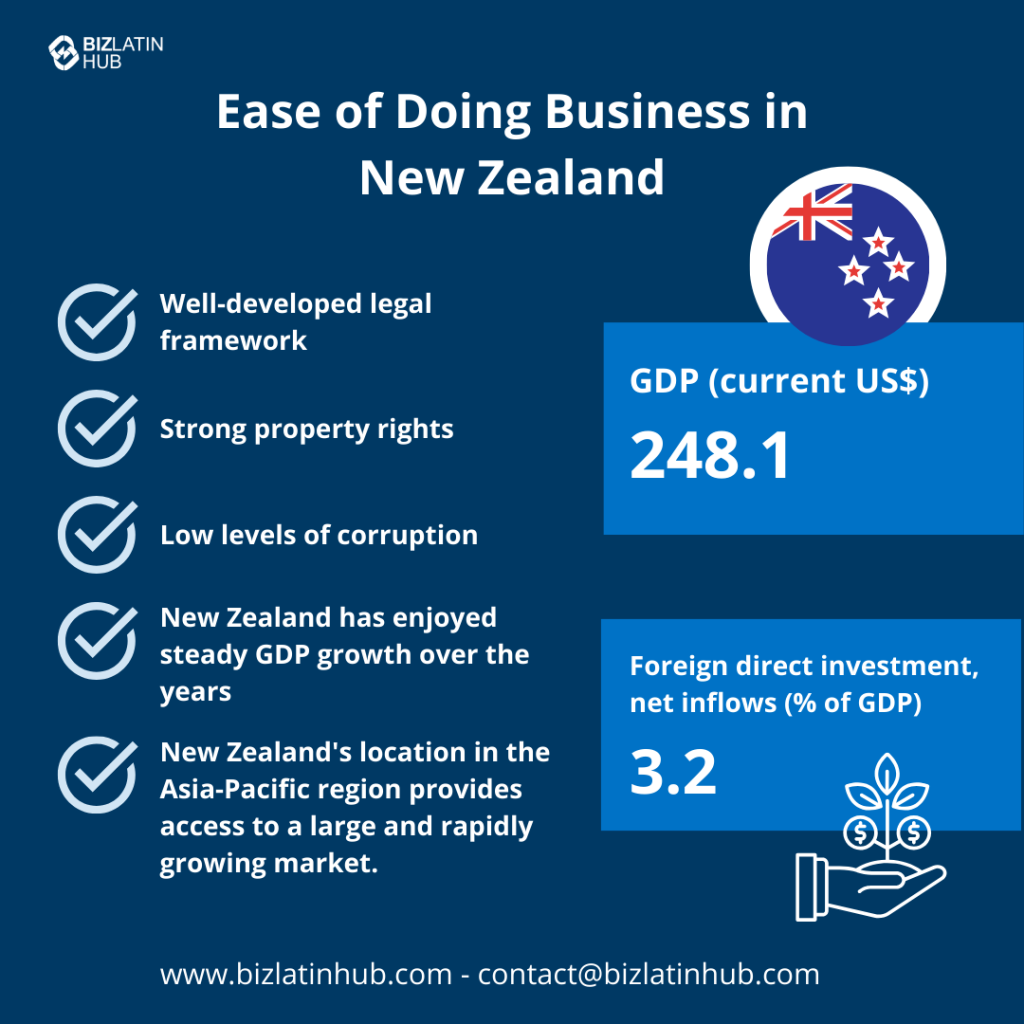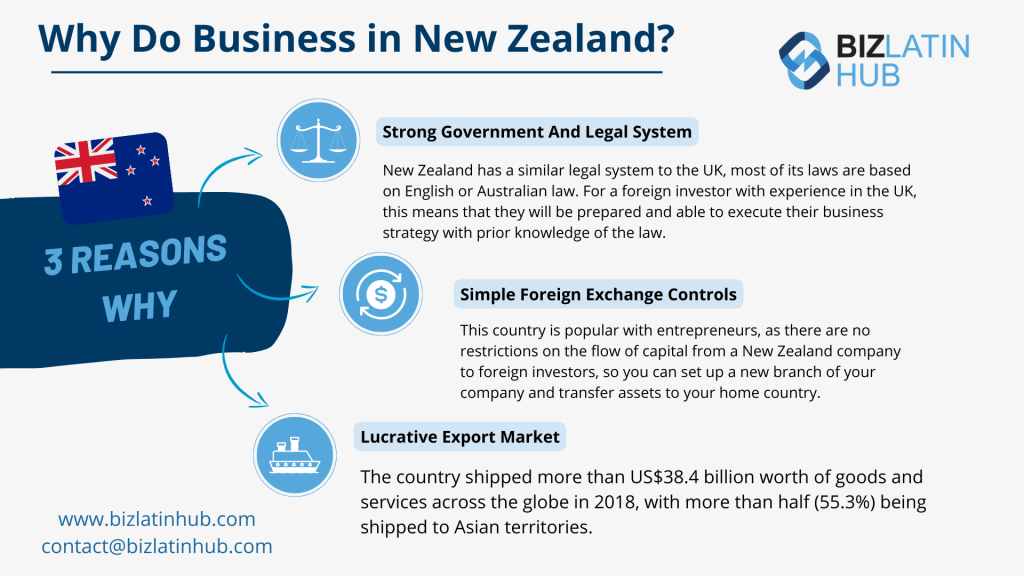There are a whole host of reasons to do business in New Zealand. Ranked as the easiest country in the world to do business, the economy is well regulated and protects employers and employees alike. It’s no surpise to learn that the patent process in New Zealand is well ordered and straightforward.
The government has worked hard to simplify the market entry process and entrepreneurs will enjoy operating in a transparent business environment. It’s important to protect your intellectual property in order to prevent other individuals or companies from copying your ideas or inventions. That means understanding the patent process in New Zealand.
In order to guarantee your firm’s best chance of success, we recommend using a patent to protect your business ideas when setting up a company in New Zealand. Without a form of legal protection for your intellectual property, other firms and individuals can make a profit off your hard work. Below, we answer common questions on the patent process in New Zealand.

What types of protection exist for business ideas?
The New Zealand Intellectual Property Office has a number of different avenues which you can explore to protect your work:
- Trademarks (e.g name, brand and logo)
- Copyright (e.g books, websites, sound recordings)
- Trade secret (e.g confidential information, strategies, processes)
- Company name registration
- Domain name registration
- Patents
- Designs
- Plant variety rights
- Geographical indications
What is a patent?
A patent is a legal right that prevents other individuals and companies from producing, using and selling something you have created. A patent’s protection lasts for 20 years. Essentially, it is the executive right to use your invention solely and capitalise on first-mover advantages.
How do you apply for a patent?
Before you spend the time and money applying for a patent, you first need to check if the invention has already been patented. A database exists on the New Zealand Intellectual Property Office.
1. Write a patent specification: a description of your invention, how to make it and how it is used. You can include drawings to help explain its use. There are strict formatting requirements.
Tip: you can file a ‘provisional specification’ if you have an idea and plan for an invention, but need extra time to find financing, or do extra research.
2. Application types: there are different application requirements depending on whether you want protection solely in New Zealand or in a number of countries.
3. File the application: to file the patent you must file an online application form and pay the applicable fee. You will be able to monitor the progress through the online portal.
4. Request examination: you must request that your application is examined by a patent examiner prior to the patent’s acceptance. This provides an opportunity to correct any errors in the application. If there are issues stemming from the report between the examiner and applicant that can’t be resolved, a hearing can be requested.

How do you maintain and renew your patent registration?
- If your patent application is pending and has not yet been granted, you must pay a maintenance fee for your patent.
- If your patent has been granted, you need to pay an annual renewal fee.
Renewal and maintenance payments are paid through the online patent portal. After six months of non-payment, the patent or application will go out of force. A restoration process must be undertaken to restore the patent or application status.
What are the fees?
There are many different types of extra fees reflective of the different processes and patent types. Fees are in New Zealand Dollars and exclude GST (15%).
- Patent specification: $250
- Request for examination: $500
- Amending the specification: $150
- Application maintenance (from year 4): $100
- Request for hearing: $850
Renewal fees:
- From years 4-9: $100
- Years 10-14: $200
- Years 15-19: $350
- Late payment fee: $50
Is my patent protected internationally?
A New Zealand patent only protects your invention in New Zealand. If would like to obtain patent protection for your invention abroad, you must apply for a patent in each desired country or region. You may consider setting up a company in the country to provide a domestic address for your overseas patent application. However, international patent law can facilitate the process of applying for patents in different countries.
There are a number of different treaties and conventions that allow one centralised application process to file multiple applications at the same time, across different countries.
The Patent Cooperation Treaty, The Paris Convention and The Budapest Treaty are three different systems that can be used when filing a patent in New Zealand. New Zealand’s agritech sector presents many opportunities for firms to expand overseas. It is key that goods, services and ideas are adequately protected before entering foreign markets.

FAQs on the patent process in New Zealand
Advanced intellectual property laws are necessary for a country to promote innovation and competition. It drives economic development and creates employment in advanced knowledge industries. Therefore, without a structured regulation system, firms will not invest in new technologies due to the lack of legal protection.
Yes, absolutely. Although there is some infringement on the edges of economies, in general IP is well protected and the region is increasingly professionalising. This means that you can rest assured that there will be protection for your intellectual property.
The New Zealand Intellectual Property Office is in charge of this.
There are many different types of extra fees reflective of the different processes and patent types. Fees are in New Zealand Dollars and exclude GST (15%).
Patent specification: $250
Request for examination: $500
Amending the specification: $150
Application maintenance (from year 4): $100
Request for hearing: $850
Renewal fees:
From years 4-9: $100
Years 10-14: $200
Years 15-19: $350
Late payment fee: $50
A New Zealand patent only protects your invention in New Zealand. If would like to obtain patent protection for your invention abroad, you must apply for a patent in each desired country or region. You may consider setting up a company in the country to provide a domestic address for your overseas patent application. However, international patent law can facilitate the process of applying for patents in different countries.
There are a number of different treaties and conventions that allow one centralised application process to file multiple applications at the same time, across different countries.
The Patent Cooperation Treaty, The Paris Convention and The Budapest Treaty are three different systems that can be used when filing a patent in New Zealand. New Zealand’s agritech sector presents many opportunities for firms to expand overseas. It is key that goods, services and ideas are adequately protected before entering foreign markets.
Biz Latin Hub can help with patent process in New Zealand
At Biz Latin Hub, we offer a range of back-office services to support foreign entrepreneurs to make their mark in New Zealand.
If you’re ready to get started in the country, but don’t know the best business structure or require legal or due diligence support, you can depend on our time-served New Zealand business experts, who are based in the country.
We can also provide supporting filing applications for the right type of intellectual property protection.
For personalized support contact our team of professional experts today.






